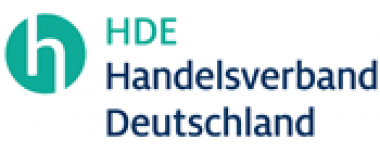HDE fordert ehrliche Aufarbeitung der Corona-Maßnahmen und der wirtschaftlichen Auswirkungen
Mit Blick auf die erste Sitzung der Corona-Enquete-Kommission am 8. September macht sich der Handelsverband Deutschland (HDE) für eine umfassende und ehrliche Aufarbeitung der Zeit der Pandemie sowie der staatlichen Maßnahmen stark. Dabei müssten auch die bis heute spürbaren wirtschaftlichen Folgen im Einzelhandel eine Rolle spielen. Für kommende ähnliche Situationen gelte es, besser vorbereitet zu sein und künftig zielgenauer zu handeln.
„Die Pandemie war für die ganze Gesellschaft eine Stress- und Ausnahmesituation. Jetzt gilt es, die Folgen der nicht immer zielgenauen Maßnahmen schonungslos anzusprechen und Konsequenzen für die Zukunft zu ziehen. Sollte es ein nächstes Mal geben, müssen alle besser vorbereitet sein. Für viele Handelsunternehmen war die Zeit der Pandemie ein existenzbedrohendes Desaster. Die Ladenschließungen waren kein probates Mittel zur Eindämmung der Pandemie und wurden trotzdem wochenlang aufrechterhalten“, so HDE-Hauptgeschäftsführer Stefan Genth. Auch in Ausnahmesituationen müsse gelten, dass solch weitreichende Eingriffe gut begründet und nachgewiesenermaßen zielführend sein müssen. Da gebe es noch viel aufzuarbeiten.
„Der Einzelhandel spürt die Folgen der Pandemie und der damit verbundenen Lockdowns bis heute. Die Konsumstimmung hat ihr Vor-Corona-Niveau seitdem nicht mehr erreicht. Verluste in Milliardenhöhe sorgten für tausende Schließungen in der Branche. Die staatlichen Hilfen reichten dabei nicht einmal ansatzweise, um die erlittenen Verluste wieder auszugleichen. Im internationalen Vergleich ist Deutschland zwar ganz gut durch die Pandemie gekommen, der Einzelhandel aber hat enorm gelitten“, so Genth weiter. Die Wirtschaft und insbesondere der Einzelhandel seien ein zentraler Teil der Gesellschaft. So sei mit der Schließung vieler Geschäfte auch die Verödung vieler Innenstädte enorm beschleunigt worden. Genth: „Die wirtschaftlichen Folgen der Pandemie-Maßnahmen treffen die gesamte Gesellschaft. Die Wirtschaft, das sind wir alle – ob als Arbeitgeber oder als Beschäftigte. Deshalb erwartet der Einzelhandel, dass die Enquete-Kommission ab heute auch ausführlich über die ökonomischen Auswirkungen der Maßnahmen spricht. Es ist gut, dass dies nun in einem sachlichen Rahmen und ohne vorgegebene, das Ergebnis vorwegnehmende, Leitplanken geschehen kann.“ Der Handelsverband stehe der Kommission jederzeit für Gespräche und Einordnungen zum Thema zur Verfügung.
HDE Handelsverband Deutschland








